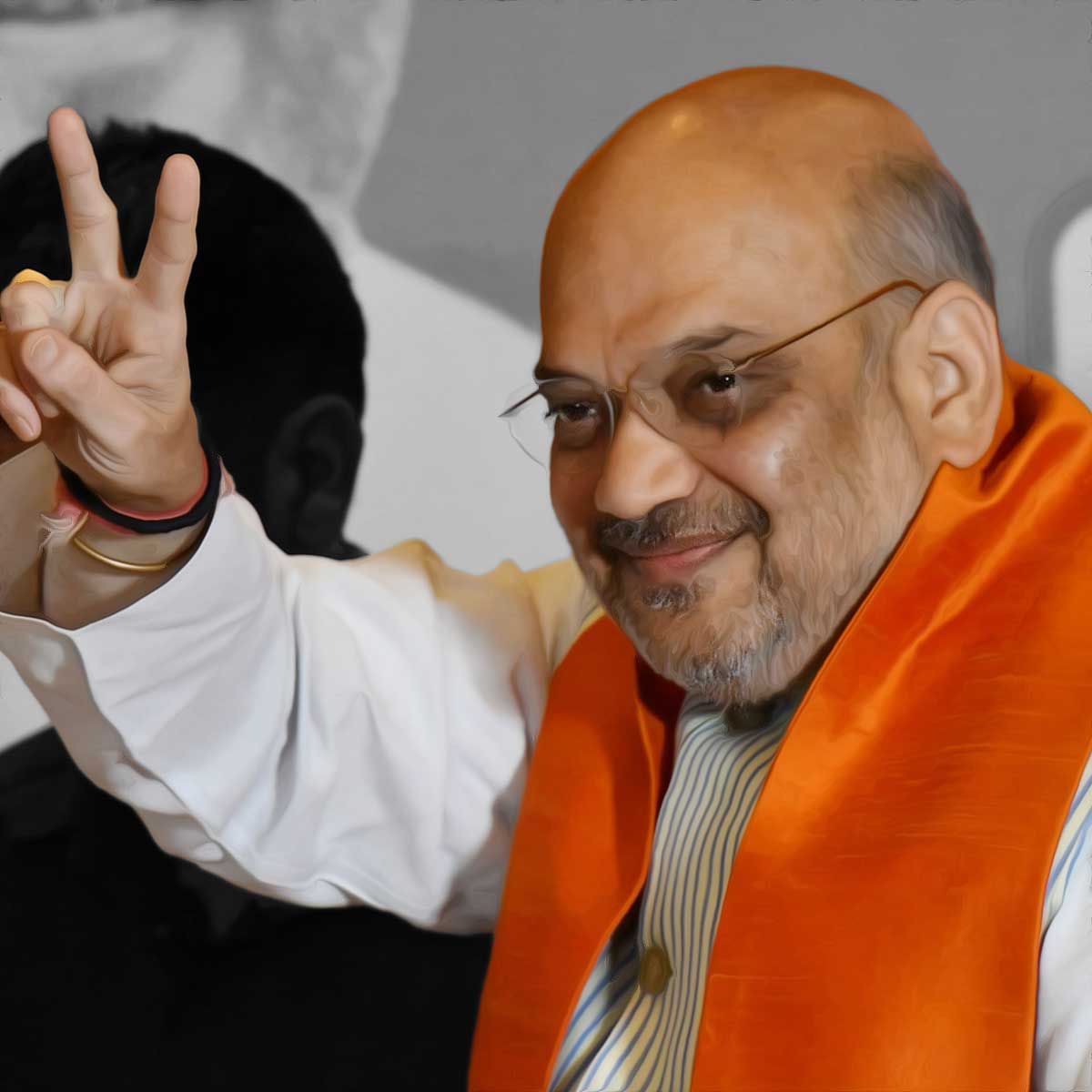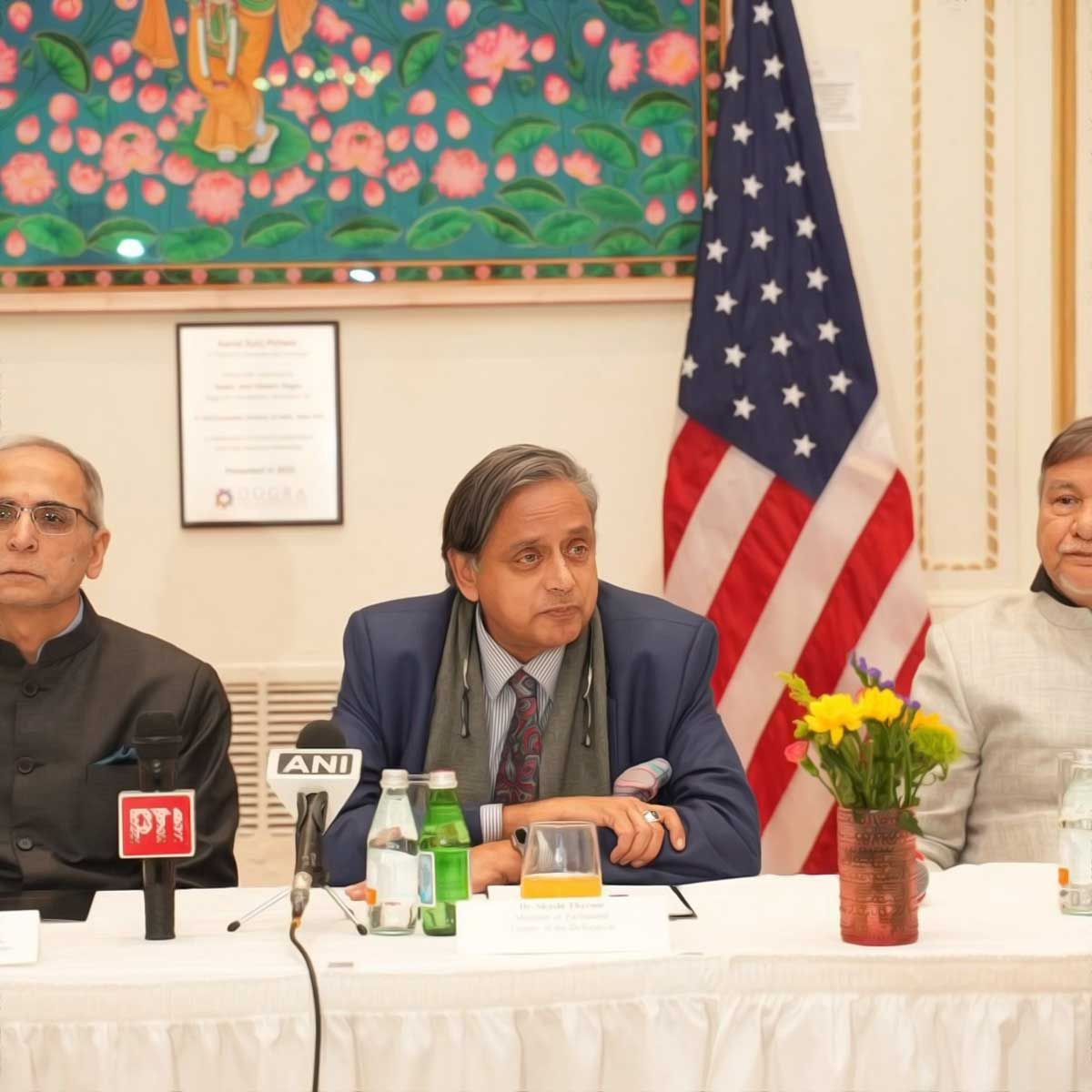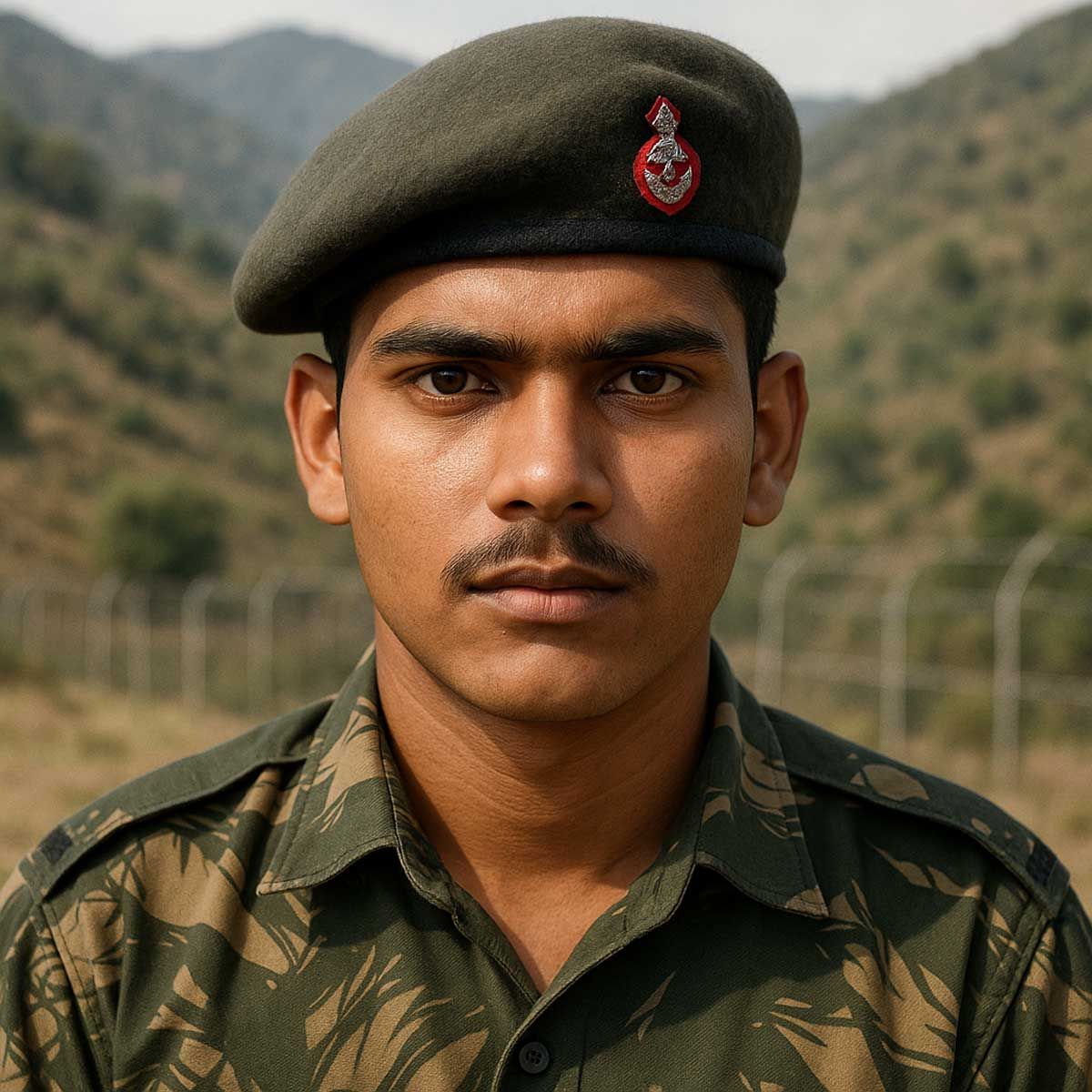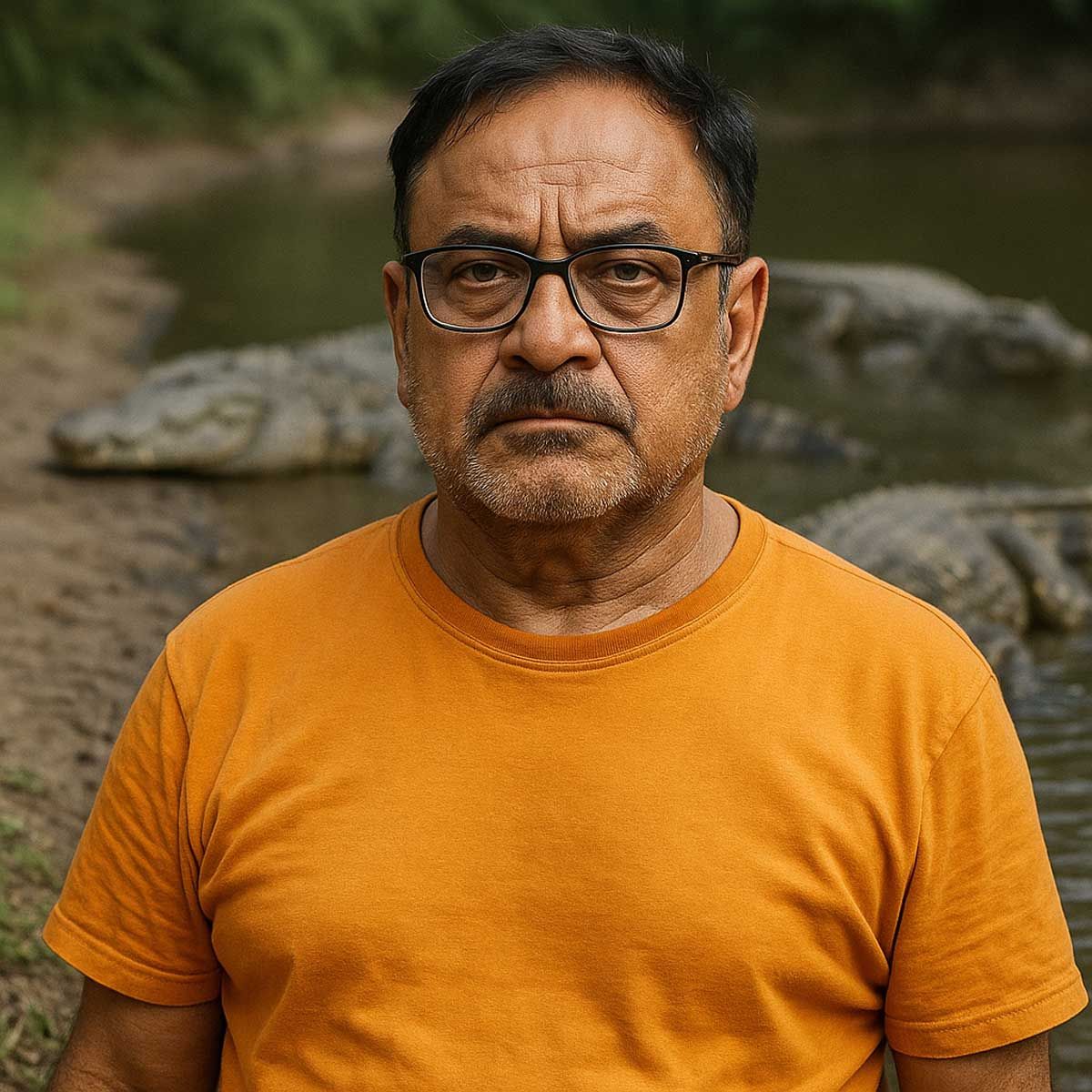More Coverage
Twitter Coverage
Satyaagrah
Written on
Satyaagrah
Written on
Satyaagrah
Written on
Satyaagrah
Written on
Satyaagrah
Written on
JOIN SATYAAGRAH SOCIAL MEDIA
Amit Shah announces transformative shifts in India's criminal laws, aiming to eradicate colonial legacies and emphasize justice over punishment, with tech integration & comprehensive consultations, Shah envisions an efficient, citizen-centric legal system

In a defining move towards reshaping the country's legal framework, Union Home Minister Amit Shah recently shed light on the primary motive behind the proposed changes to India's criminal laws. Speaking on Sunday, he underscored the need for a fresh, modern perspective that does away with the colonial-era remnants that have clung to the system for close to a century and a half.
|
During his address, Shah emphasized, "The old laws were to strengthen the English rule...to ensure they could rule well. They intended to punish, not ensure justice. The new laws don't intend to punish, they intend to ensure justice." Such a statement reaffirms the government's commitment to reimagining a justice system that is robust and fair.
Further elaborating on the three new laws set to reshape the criminal justice landscape, Shah clarified that their objective isn't centered around penal actions but is fundamentally focused on ensuring justice for every citizen.
This notable announcement came at the valedictory session of the International Lawyers' Conference, an event organized by the esteemed Bar Council of India (BCI) over the weekend. Shah's message was crystal clear: The impending transformation of the criminal law system is driven by the ideals of justice and not punishment, echoing a new era for India's legal proceedings.
 |
| तीन प्रस्तावित आपराधिक कानून सजा के बजाय न्याय करने पर केंद्रित : शाह |
In a remarkable stride towards modernizing the Indian legal system, the Central government, during the Parliament's monsoon session, rolled out three transformative bills. These bills aim to supplant some of the longstanding pillars of Indian legal code, namely the Indian Penal Code (IPC) of 1860, the Code of Criminal Procedure (CrPC) of 1973, and the Indian Evidence Act of 1872.
The IPC, originally established during the British Raj in 1860, is set to be succeeded by the Bharatiya Nyaya Sanhita, 2023. Similarly, the CrPC of 1973 is on the roadmap to be substituted by the Bharatiya Nagarik Suraksha Sanhita, 2023. Not stopping there, the Indian Evidence Act of 1872 will be supplanted by the Bharatiya Sakshya Bill, 2023.
|
Highlighting the transformative vision even further, Shah introduced three pivotal administrative initiatives:
- e-courts phase 3: Promising a digital leap for the judiciary.
- Inter-operable Criminal Justice System (ICJS): Envisioning seamless interactivity between the various arms of the justice system.
- Technology integration in law: Bridging the gap between technology and legal proceedings to make the system more efficient.
Shah exuded confidence in his announcement, assuring that the culmination of these newly proposed laws and the innovative initiatives will herald the end of prolonged pendency in the criminal justice system. In essence, the harmonization of these efforts paints a picture of a future where justice is not only swift but also more aligned with the contemporary needs and aspirations of the Indian populace.
Union Home Minister Amit Shah, building on his prior announcements, elucidated on the proposed modifications to the criminal justice system, emphasizing the administrative milestones envisaged to overhaul the ecosystem. With the introduction of e-courts phase 3, the Inter-operable Criminal Justice System (ICJS), and the integration of modern technology into the CrPC, IPC, and Evidence Act, the Indian legal framework is poised to witness a digital and procedural renaissance.
Shah's pledge to the nation was clear and firm: "By synergizing these groundbreaking laws and pioneering initiatives, I assure you, we'll eradicate the backlog in our criminal justice system within the next ten years."
One revolutionary provision introduced within the proposed criminal statutes centers on the extension of summary trials. Specifically, Shah pinpointed that the remodeled legal framework will pave the way for summary trials in instances where the envisaged punishment doesn't surpass a tenure of three years. This is a strategic move to expedite less severe cases, ensuring swifter justice without compromising the quality of judgments.
But the reforms don't stop there.
 |
| Here are the major reforms |
In a bid to combat procedural delays that have historically plagued the system, the new laws impose stringent timelines on law enforcement agencies and judicial entities alike. The police will now be obligated to present their challan to the respective court within a mere seven days post the initial hearing. Furthermore, the conclusion of any investigation will be mandated within a tight 90-day window following the filing of a chargesheet. Shah also underscored a pivotal directive that judgments, once reserved, must be pronounced without delay, specifically within a span of 30 days.
These pronounced changes, with their razor-sharp focus on timeliness and efficiency, not only signal India's commitment to reforming its criminal justice system but also reflect the nation's dedication to upholding the principle that justice delayed is justice denied.
Union Home Minister Amit Shah, in his final remarks, underscored the dynamic journey ahead in the transformation of India's criminal justice system. Recognizing the strides taken, he advocated for the rapid integration of technology with the introduction of e-prosecution, e-presence, e-forensics, and e-courts. Such advancements promise not just streamlined processes, but also a profound commitment to a citizen-centric approach, bridging the gaps between legal entities and the people they serve.
Drawing attention to the collective nature of this endeavour, Shah extended an open invitation to the pillars of India's legal fraternity. He passionately conveyed, "I urge all lawyers nationwide to deeply review these monumental legal shifts and grace us with their invaluable feedback." Reiterating the significance of ground-level insights, Shah emphasized that the experiential knowledge lawyers possess regarding the system's daily hurdles is vital for the successful rollout of these reforms.
Reflecting on the meticulous groundwork that has been the bedrock of these proposed laws, Shah, during his address to the Lok Sabha earlier this year, revealed the collaborative nature of this monumental task. He remarked that the journey of sculpting these laws wasn't undertaken in isolation but was a symphony of diverse opinions and expertise. It spanned consultations with 18 States, 7 Union Territories, esteemed judges from both the Supreme Court and High Courts, 22 premier law universities, 142 Parliament Members, 270 Members of the Legislative Assembly, and numerous engaged citizens.
These extensive deliberations, spread across a staggering 158 meetings over four years, manifest the country's unwavering commitment to collective progress, ensuring every voice is heard, every perspective considered, and every concern addressed.
In wrapping up, the journey ahead for India's criminal justice system, bolstered by these reforms, is not just about swift legal procedures. It's a clarion call for collective evolution, ensuring that the scales of justice balance efficiency with empathy, progress with participation, and innovation with inclusion.
 Support Us
Support Us
Satyagraha was born from the heart of our land, with an undying aim to unveil the true essence of Bharat. It seeks to illuminate the hidden tales of our valiant freedom fighters and the rich chronicles that haven't yet sung their complete melody in the mainstream.
While platforms like NDTV and 'The Wire' effortlessly garner funds under the banner of safeguarding democracy, we at Satyagraha walk a different path. Our strength and resonance come from you. In this journey to weave a stronger Bharat, every little contribution amplifies our voice. Let's come together, contribute as you can, and champion the true spirit of our nation.
 |  |  |
| ICICI Bank of Satyaagrah | Razorpay Bank of Satyaagrah | PayPal Bank of Satyaagrah - For International Payments |
If all above doesn't work, then try the LINK below:
Please share the article on other platforms
DISCLAIMER: The author is solely responsible for the views expressed in this article. The author carries the responsibility for citing and/or licensing of images utilized within the text. The website also frequently uses non-commercial images for representational purposes only in line with the article. We are not responsible for the authenticity of such images. If some images have a copyright issue, we request the person/entity to contact us at satyaagrahindia@gmail.com and we will take the necessary actions to resolve the issue.
Related Articles
- Writ petition of Irfan scrapped by Allahabad High Court of seeking permission for Azaan on loudspeakers in the mosque, says ‘not a fundamental right’: Read details of the case
- Madhya Pradesh HC accepted petition for stay on Muslims performing Namaz in the compound of Bhojshala monument: Read how an educational centre and a historic temple of Goddess Saraswati became Kamal Maulana mosque
- In an unexpected turn, the Supreme Court acquits woman accused of killing her newborn; says High Court, trial court possibly didn't respect her right to privacy, it's enlightening to see how privacy might now overshadow the scales of justice, isn't it?
- Supreme Court of India Justice Nagarathna ~ Hate Speech denies human beings the Right to Dignity, and a greater responsibility is cast upon public functionaries and celebrities against vitriolic statements owing to their position
- "बाहर फेंको उठाकर": Jharkhand HC orders the removal of Bangladeshi intruders after revelations of ST girls being converted through marriage and madrasas' involvement, declaring a grave national issue that requires both state and central govt collaboration
- "Access is vital in lobbying. If you can't get in your door, you can't make your case": CJI Chandrachud removed justice MR Shah from the bench hearing forced conversion for not succumbing to lobby's pressure, was scheduled for Feb, now listed on Jan 16
- "A verbal contract isn't worth the paper it's written on": Google moves Supreme Court against National Company Law Appellate Tribunal (NCLAT) order upholding CCI's ₹1,337 crore penalty for abuse of dominant position within the Android ecosystem
- "It is only the cynicism that is born of success that is penetrating and valid": A five-judge bench of the Supreme Court on Monday dismissed a petitions challenging the Central government's 2016 decision to demonetise currency notes of ₹1,000 and ₹500
- Justice Gaurang Kanth who took oath as judge of the Calcutta High Court this morning, his letter surfaced recently where he was seeking suspension of police officers who failed to keep the door of his residence locked resulting in the loss of his pet dog
- "Devotional songs of a Christian Yesudas rendered on Hindu Gods without any demur in temples": Madras High Court plays nosy-parker with Hindu faith stating that non-Hindus cannot be prevented entry into temple if he has faith in that Hindu deity
- In a case regarding child custody of 11-year-old Kanak, Court orders minor girl to be sent to Nari Niketan: Rajasthan
- "The cost of false justice: a childhood lost": In an unsettling twist of justice, even minors aren't spared from the misuse of SC-ST Act, “I request CM & DCM to explain the meaning of POCSO, Atrocity, & assault cases filed against us”, asks an 8-yr-old
- "Re-examine all that you have been told... dismiss that which insults your soul": Supreme Court dismisses plea against appointing Justice DY Chandrachud as CJI, said "No reason to entertain this petition. It is completely misconceived. Thus dismissed"
- "It is not titles that honor men, but men that honor titles": CJI DY Chandrachud lamented, "Hundreds of young people die in India due to honour killings merely because they love someone or marry outside their caste or against their family's wishes"
- In a defining moment, India's Supreme Court declined to recognize same-sex marriage rights, placing the onus on Parliament, amidst passionate pleas & dissenting opinions, future of LGBTQ+ unions remains in legislative hands, echoing society's crossroads




























